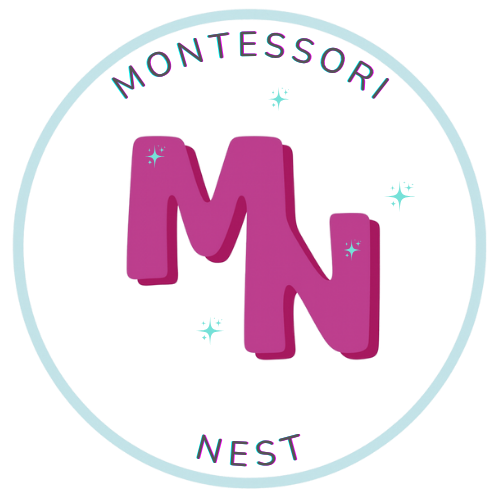Why the Montessori Method Matters?
Share
A gentle approach that helps children grow into confident, curious, and capable humans.
In a world that often rushes children to “learn faster,” the Montessori Method reminds us to slow down and let children unfold naturally. Developed by Dr. Maria Montessori over a century ago, this educational philosophy remains as relevant today as ever — perhaps even more so.
At its heart, Montessori isn’t just a way to teach; it’s a way to see the child.
1. Respecting the Child’s Natural Rhythm
Every child learns differently — and at their own pace.
In a Montessori environment, children are not compared or rushed. Instead, they’re invited to explore when curiosity sparks. This builds intrinsic motivation — the kind of learning that lasts a lifetime.
When a child can choose their work and repeat it until they master it, they develop focus, confidence, and a true love for learning. Montessori educators call this “following the child.”
 2. Learning Through Hands-On Experience
2. Learning Through Hands-On Experience
Montessori materials are designed to be touched, explored, and experienced. From pouring water to counting beads, children learn abstract ideas through concrete activities.
This tactile, sensory-based learning helps develop fine motor skills, concentration, and problem-solving abilities — far beyond what screens or worksheets can offer.
As Dr. Montessori said:
“What the hand does, the mind remembers.”
3. Encouraging Independence from an Early Age
One of the most powerful Montessori principles is fostering independence.
Children learn to dress themselves, prepare snacks, tidy up their environment, and make meaningful choices.
These small daily actions strengthen their self-esteem and sense of responsibility. Parents often notice how children who grow in Montessori settings say proudly:
“I can do it by myself!”
4. A Calm and Purposeful Environment
Montessori classrooms and homes are thoughtfully prepared — everything has a place, and children know where to find it.
This calm, organized environment helps them focus and feel secure. It’s a space that says: “You belong here.”
You can bring this into your own home by creating a Montessori corner — a small area with low shelves, natural materials, and child-sized tools where your little one can explore freely.

5. Education for the Whole Child
Montessori education nurtures not only academic growth but also emotional and social development.
Children learn to respect others, care for their environment, and express empathy. The goal is not just to raise smart children — but kind, thoughtful humans.
A Method That Stands the Test of Time
More than a century after its creation, Montessori continues to inspire educators and parents worldwide.
It aligns beautifully with what modern science tells us about brain development and child psychology.
The Montessori Method matters because it honors what’s already perfect in every child:
their curiosity, their creativity, and their deep desire to learn.
💛 Ready to bring Montessori home?
If you’re new to Montessori or want to create meaningful learning moments at home, explore our printable activity guides and themed packs at Montessori Nest.
Each guide is designed to help parents nurture independence, calm, and joy in everyday learning.
